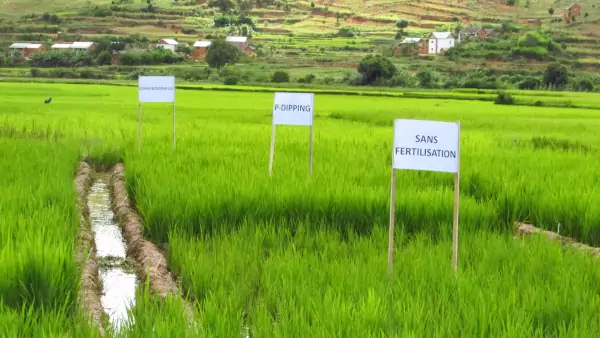The FYVARY rice research project ended today, 8 September 2022. FYVARY is a project under the aegis of the Ministry of Agriculture and Livestock since 2017, funded by the Malagasy government jointly with the Japanese government...
Many research results have come out of this project, including for example the new rice varieties FYVARY 85 and FYVARY 32, designed for wastelands and able to resist climate change. It is also the technique of soaking rice roots with phosphorus fertiliser before transplanting or P-Dipping. These research results have solved the problem of rice cultivation in the centre of the country, thanks to the efforts of Malagasy researchers from FOFIFA and Japanese technicians.
The problem with the highland soil is that it is very acidic and contains iron oxide and aluminium oxide, which is a component that prevents phosphorus from being absorbed by the growing rice so that the rice cannot obtain the phosphorus it needs. Phosphorus, which is one of the elements that rice needs to grow and produce well.
The P-Dipping technique is a method of improving rice fields, to be more productive, for highland areas. It is based on soaking the rice roots with phosphorous fertiliser before transplanting or P-Dipping. Using the technique allows transplanted rice to produce quickly. It also halves the amount of fertiliser used and reduces costs. Crops using P-Dipping shorten the growth cycle of rice and are more resistant to drought.








